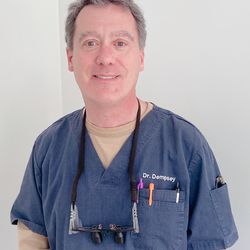Atraumatic Restorative Technique in Hudson, MA
Dental caries is the most prevalent global disease. Traditional procedures entail using electric drills to remove decaying regions of the tooth before filling. A local anesthetic is usually administered to prevent pain during the treatment. Traditional treatments are usually expensive and necessitate highly skilled dental health staff, access to electricity, and proper gear. These issues may limit access to service supply, particularly in undeveloped areas.
At Restoration Smiles: Adult & Pediatric Dentistry, an experienced dentist in Hudson, MA, we perform Atraumatic Restorative Treatment (ART) as a different way to treat dental decay that involves removing decaying tissue with hand devices alone, usually without using anesthesia (injected painkiller) or electrical equipment.
What to Expect During Atraumatic Restorative Treatment?
ART is a minimally intrusive strategy to both prevent and treat dental cavities. It is divided into two parts: sealing caries-prone pits and fissures and repairing cavitated dentin lesions with sealant restorations. Using finger pressure, an Atraumatic Restorative Treatment sealer is applied using a high-viscosity glass ionomer pressed into the pits and cracks. Hand devices remove soft, demineralized carious tooth tissue during an Atraumatic Restorative Treatment restoration. This is followed by filling the cavity with an adhesive dental substance, which plugs any leftover pits and cracks.
Benefits of Atraumatic Restorative Treatment
Atraumatic Restorative Treatment is considered a conservative treatment not only because it eliminates decaying tissue using hand devices, so preserving as much dental structure as possible, but also because it prevents pulp irritation and minimizes patient discomfort. Atraumatic Restorative Treatment can treat minor, medium, and deep cavities caused by dental caries (where decay has not reached the tooth nerve or dental pulp).
Decaying tissue is removed from shallow/medium-sized cavities until all soft tissue is removed and more rigid tissue is reached. The decay must be carefully removed in deeper cavities to prevent it from getting to the tooth's pulp. The hollow floor should be left with soft tissue. The depth of the cavity and the possibility of reaching the tooth's pulp (the nerve is sometimes exposed when deep cavities are accessed with rotary burs or vigorously with hand instruments, compromising the tooth's vitality) influence the decision on how much decay to remove (whether to remove decay from firm dentine or stop when soft dentine has been reached).
The Atraumatic Restorative Treatment (ART) exemplifies the minimal intervention dental caries control paradigm. It varies from other instances of minimally invasive treatments in theory. This implies that the term 'ART' should be used following its original meaning in future communication. Visit Restoration Smiles: Adult & Pediatric Dentistry at 2 Coolidge St, Suite 202, Hudson, MA 01749, or call (508) 658-0661 for the best dental care.
Nightguards
Sleep Apnea Treatment
TMJ Rehabilitation
Space Maintainers
Habit Breaker Appliance
Sports Mouthguard
Extractions
Laser Frenectomy
Pulpotomy
Nutritional Counseling
Cleanings
Composite (White) Fillings
Silver Diamine Fluoride
Composite Bonding
Pediatric Crowns
Fluoride Treatment
Sealants
Oral Cancer Screening
IV Sedation/General Anesthesia
Oral Conscious Sedation
Digital Dentistry
General Dentistry
Nitrous Oxide Analgesia
Teeth Whitening
Veneers
White Spot Removal – Resin Infiltration
Smile Design/Full Mouth Rehabilitation
Dental Trauma
Special Needs
Extraction
Partial Dentures
Dentures
Implant Supported Crowns/Prosthesis
Porcelain Bridges
Porcelain Crowns
Scaling and Root Planing
Cosmetic Dentistry
Pediatric Dentistry
Preventative Dentistry
First Dental Visit
Invisalign
Emergency Treatment
Sedation Dentistry
Visit Our Office
Office Hours
- MON - TUE8:30 am - 5:00 pm
- WED8:30 am - 2:30 pm
- THU8:30 am - 5:00 pm
- FRI8:30 am - 2:30 pm
- SAT - SUNClosed



